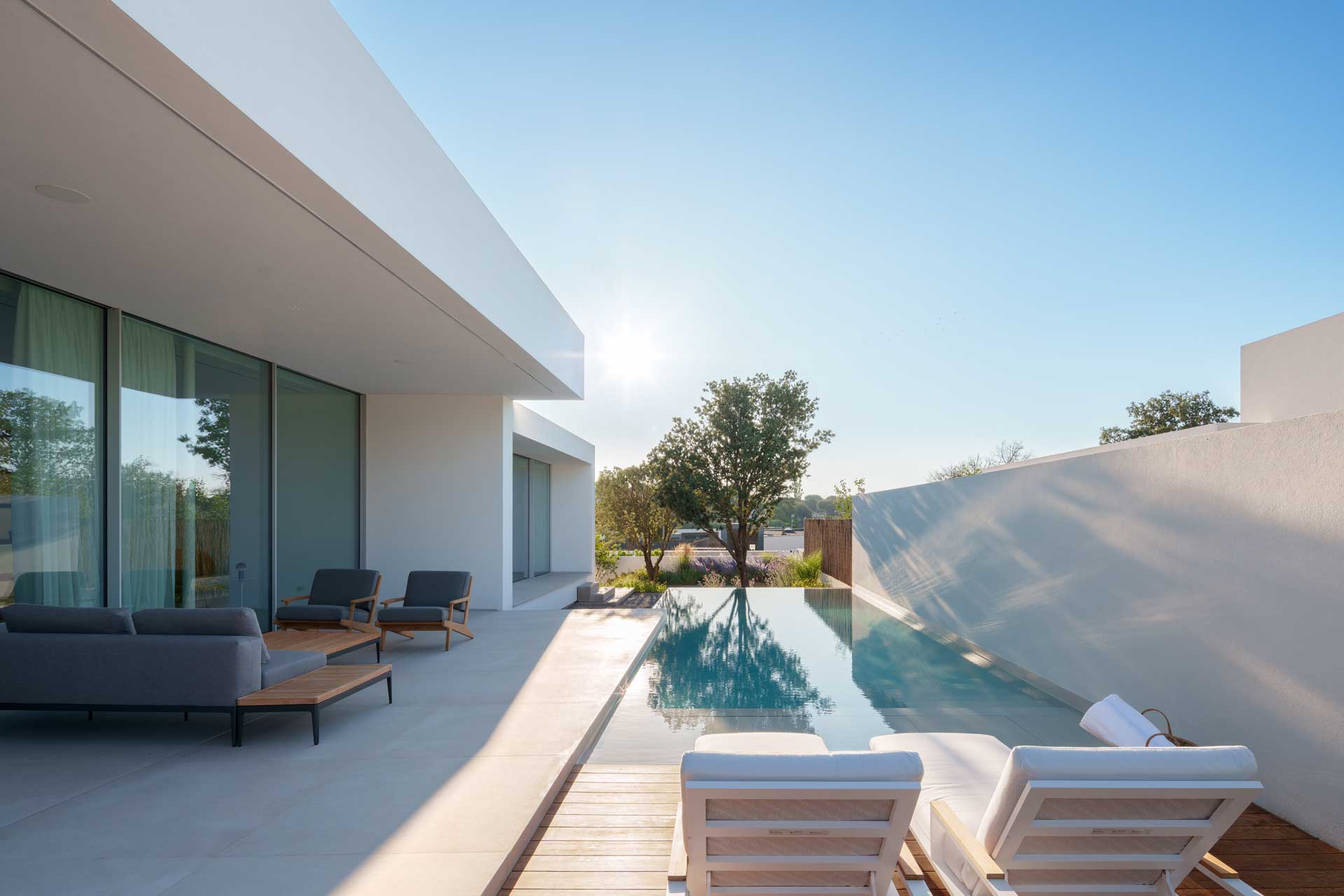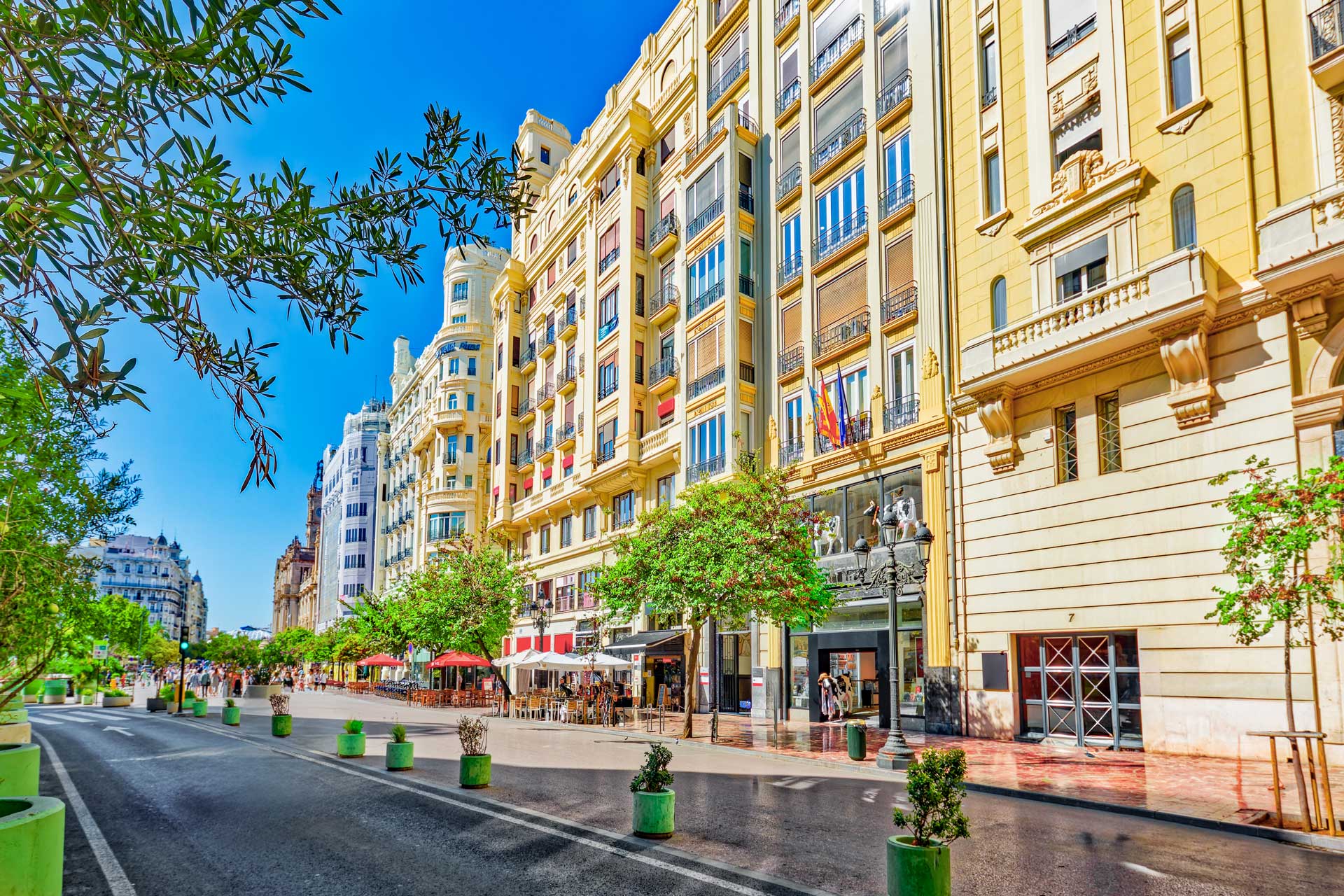Relocating as a family is never just about moving house. It’s about laying new foundations — personal, legal, emotional, and cultural — in an unfamiliar place where the small details matter just as much as the big decisions. At Livin’Valencia, we’ve had the privilege of accompanying dozens of families in Valencia from around the world as they relocated to Spain. And after years of doing this work (and living it ourselves), we know what truly makes a difference: clear guidance, timely action, and a support team that genuinely cares.
We don’t sell dreams. We build trust, step by step — from choosing the right neighborhood and securing school spots to avoiding administrative pitfalls and finding a property that feels like home. This guide is designed for families who are serious about settling in Valencia with confidence and peace of mind.
Finding Your Family’s Place: City Living or Suburban Space?
The first big decision most families face is choosing whether to live in Valencia city or in the surrounding suburbs. Both offer distinct advantages — it all depends on your lifestyle, your children’s schooling needs, and how much space you want day to day.
Let’s walk through what we usually share with our clients when weighing these two paths.
Living in Valencia City – Culture, Convenience, and Walkability
Living in the city means being at the heart of everything — and for many families, especially those with younger children or teenagers, this brings comfort and connection. Here, life is walkable. You can get to the supermarket, the doctor, your child’s after-school activities, or a language class all within a 15-minute radius. Public transport is frequent, safe, and affordable. And for many expats, being close to international schools, cultural institutions, and healthcare centers is a big plus.
Some of the most family-friendly areas we regularly recommend in Valencia city include:
- Pla del Real: This quiet and elegant neighborhood is home to beautiful tree-lined avenues, several green spaces, and excellent access to both public and private schools. It also borders the old riverbed park — a huge asset for families with active kids.
- Canovas and Gran Vía: Central but not overwhelming, these adjacent neighborhoods offer wide sidewalks, traditional architecture, and proximity to bilingual concertado schools. It’s also a lively area for cafes, bookstores, and cultural life — perfect for parents who enjoy walking to everything.
- La Seu & Xerea: These central historic districts are surprisingly family-friendly, especially for those looking to immerse themselves in Spanish culture. Housing is mostly apartments in charming period buildings, and proximity to museums, schools, and services is excellent.
- Campanar: A bit further northwest, this area offers newer housing developments, calm residential streets, and good access to public parks and hospitals. It’s often overlooked, but it combines urban living with a more relaxed rhythm.
- Patraix and Jesús: These areas feel local, with authentic Spanish character and excellent transport connections. They’re ideal for families looking for value-for-money rentals or purchases without sacrificing city life.
For families buying in the city, the most common property types are spacious apartments — often ranging from 90 to 150m² — with balconies or small terraces. Buying prices vary by zone but typically start from €2,800/m² in areas like Patraix, rising to €4,500–€5,500/m² in the most central or renovated zones like Gran Vía or Pla del Real.
While finding a home with a garden is (almost) impossible in the city, penthouses with rooftop terraces or shared community pools are a sought-after alternative.
For families renting in the city, monthly prices for a 3-bedroom apartment range from approximately €1,500 to €3,500 depending on size, condition, and location. More affordable options can be found in well-connected neighborhoods like Campanar or Jesús, while renovated flats in Pla del Real, Gran Vía, or Canovas typically command higher rents. Long-term rentals in the city often require a 1 or 2-month deposit, and agencies usually charge a commission of one month + VAT, though this varies. Availability can be competitive during peak moving seasons, so early search and local support are key.
Living in the Suburbs – Space, Community, and Nature
If your dream of moving to Spain includes a garden, a swimming pool, a safe residential street, and a bit more breathing room, the Valencia suburbs may be the perfect fit. This is where many international families choose to settle — often in search of a slower pace, outdoor living, and proximity to top-tier international schools.
Here are the areas we often help families relocate to — and why:
- L’Eliana: Often the first name that comes up when families look for suburban life in Valencia, L’Eliana offers a balanced mix of spacious homes, expat community life, and excellent public transport (including a direct metro line to the city). It’s an area where you’ll hear many languages spoken at the school gates, and where local bakeries, parks, and community sports facilities form the backbone of daily life. Buying a detached house with a garden here typically starts around €350,000, and rental prices for 3–5 bedroom villas range from €1,500 to €2,800/month.
- Santa Bárbara (Rocafort): This is one of the most exclusive gated communities in the Valencia region. The homes here are architecturally diverse, often featuring private pools, large plots, and high levels of security. It’s a top choice for families seeking tranquility, privacy, and proximity to elite schools like Cambridge House and Los Olivos. Prices to buy are higher — expect €700,000 to well over €1 million for a family home — but for many, it’s worth it for the environment and services.
- Rocafort & Godella (town centers): These charming towns, located just 10–15 minutes from Valencia, offer a quieter rhythm of life with local markets, cultural events, and strong public services. Many families appreciate the mix of traditional Spanish life with international accessibility. Properties here vary from townhouses to freestanding homes, and buying prices start from €280,000.
- Bétera: Slightly further out, Bétera is a growing favorite for families who want proximity to nature (especially the Sierra Calderona natural park) and good value for larger properties. It’s well-connected by metro and road, and offers a blend of modern villas and traditional homes. Buying prices range from €250,000 to €500,000 for most family homes.
- Paterna: A large municipality with several distinct residential areas, Paterna offers a strategic location close to both the airport and key business parks, making it popular with working families. The residential zones like La Cañada are known for large tree-lined plots, a strong community vibe, and schools within walking distance. Property prices are slightly more affordable than Rocafort or L’Eliana, and still offer access to top amenities.
For families who prefer to rent, a 3- to 5-bedroom family home with a garden and pool typically rents for €1,300 to €2,800/month depending on location, condition, and amenities. In more premium areas like Santa Bárbara, high-end rentals can go beyond €3,500/month, though they often include extras like security services, smart home features, and private access roads. Rental contracts in the suburbs are generally for 12 months or more, and in some cases landlords prefer long-term stability, especially with families.
It’s worth noting that the rental market in these areas can be competitive, especially close to the international school calendar. We often advise families to begin their property search well in advance — particularly if they have specific preferences regarding layout, proximity to schools, or availability of outdoor space.
Whether buying or renting, what families appreciate most about these residential areas is the blend of privacy, calm, and community life — where children can grow up safely and parents can build a real connection with neighbors, local culture, and the pace of Mediterranean living.
Choosing the Right School: Public, Private, Concertado, or International?
Education is often the cornerstone of a successful relocation. One of the first things we do with families is help them understand the real differences between the schooling options in Valencia — not just from an academic standpoint, but also in terms of admission timelines, community life, and integration outcomes.
Here’s how the main options compare:
- Public schools are free and assigned based on your official address (empadronamiento). Most offer bilingual education in Spanish and Valencian, though support for non-Spanish speakers can vary. If you’re committed to local integration and plan to stay long-term, this can be a great option, especially for younger children.
- Concertado schools are semi-private institutions that blend public funding with private management. They often have a religious or pedagogical identity (Catholic, Montessori-inspired, etc.) and offer more structured environments. They typically require a monthly contribution and sometimes uniforms, but can provide an excellent bridge between public and private systems.
- Private international schools are the preferred choice for many newly arrived families, particularly if children are older or don’t speak Spanish yet. These include:
- British School of Valencia (central)
- Cambridge House (Rocafort)
- Caxton College (Puçol)
- Lycée Français (Valencia)
- American School of Valencia (Puçol)
Most schools open applications well in advance and have strict requirements for documentation. We support families through the entire process — from narrowing down school options to submitting paperwork and following up with admissions teams. We also guide on best school-residence combinations based on commuting time, community, and integration goals.
Bureaucracy Made Bearable: The Spanish Paper Trail
We won’t sugarcoat it — bureaucracy in Spain can be challenging. But with proper support, it becomes manageable.
Key documents and processes include:
- NIE numbers (for legal identification and any property transaction)
- TIE cards (residence permits for non-EU citizens)
- Empadronamiento (registering your family with your local town hall)
- Social security registration, public health card, and school enrollment forms
- Opening a bank account and translating your health/financial documentation
Our relocation packages for families include handling these steps for you — not just filling forms, but securing appointments, liaising with authorities, and accompanying you when needed. We work with trusted immigration lawyers to ensure your move complies with Spanish law and that you aren’t exposed to risk or delay.
Integration Is a Process — We Make It Smoother
Even with logistics under control, integration is emotional. It takes time for children to settle into a new school, for parents to feel grounded in their routines, and for a new country to feel like home.
That’s why we go beyond checklists. We connect families with:
- Local associations and sports clubs
- Cultural activities and community groups
- Language schools and Spanish tutors
- Other expat families who’ve recently moved here
We don’t promise instant belonging, but we do everything possible to make that first six months easier — especially for kids. Families we’ve supported often say that these early relationships and local insights were as valuable as the paperwork.
Final Thoughts: This Isn’t Just a Move — It’s a Life Transition
Relocating as a family is a big decision. You’re not just changing countries — you’re building a new ecosystem for your children, your work, your health, your future. The good news is: it’s absolutely doable in Valencia. The city and its surroundings are welcoming, family-oriented, and increasingly international. But doing it well takes more than enthusiasm.
It takes planning, precision, and a local partner who sees the full picture.
Let’s Talk About Your Move to Valencia
If you’re thinking of relocating your family to Valencia and want a clear, no-obligation conversation, we’re here for you. Our first consultation is free — and fully focused on understanding your goals, not selling a service.
👉 Book your Pre-Move Consultation
We’ll walk you through your options, your timing, and what you can expect — honestly and with care. Because that’s how families settle in successfully. And we’ll be with you every step of the way.




